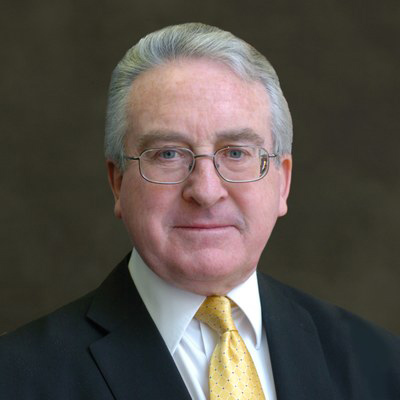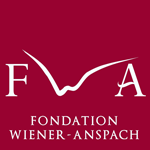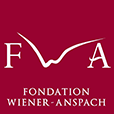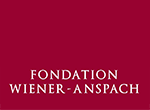 In March Sir Michael Wood, Senior Fellow of the Lauterpacht Centre for International Law (University of Cambridge), came to Brussels to give a lecture on international customary law. On that occasion he granted us an interview touching on his experience as a Wiener-Anspach fellow (one of the very first!), on European Law and on the United Nations International Law Commission, of which he is a member.
In March Sir Michael Wood, Senior Fellow of the Lauterpacht Centre for International Law (University of Cambridge), came to Brussels to give a lecture on international customary law. On that occasion he granted us an interview touching on his experience as a Wiener-Anspach fellow (one of the very first!), on European Law and on the United Nations International Law Commission, of which he is a member.
You were a Wiener-Anspach Fellow in 1969/1970, when you came to study European Law at the Institute for European Studies (IEE). How did you come to be interested in such an issue at a time when France had opposed its second veto to Britain’s EEC membership?
At Cambridge, where I was for four years, I focused on public international law, which includes some aspects of European law. The course however wasn’t just on European Community Law, but on European law more broadly: it included the Council of Europe, the European Atomic Energy, business, lots of different aspects of European law. I have to say that I did not anticipate working in this field in practice. When I came to Brussels, France had already said no twice and was probably going to say no again. Halfway through the year I was offered a Job at the British Foreign Office, so I knew I was going to deal with international law for the British government.
How would you describe your experience at the IEE?
It was different from Cambridge. It was very interesting the way in the Belgian system lessons were given. We had a lot of very eminent lecturers: Paul-Henry Spaak used to come and talk to us, people from the European commission, Daniel Vignes, a whole variety of names I had already heard of. They were all busy, so they tended to come at eight o’clock in the morning or at seven o’clock in the evening, and I was just not used to this. But you learned very quickly from people who were dealing with these matters day-to-day. I was also impressed by how international the people were at the IEE: some were from Argentina and from other parts of Latin America. When I was here my one regret was that Michel Waelbroeck was on sabbatical in the United States, so I never met him. He was probably the most famous regular full professor at the time.
Are you still in touch with some of the students you met at the time?
Unfortunately I’m not in touch with any of them, but the relations were very good at the time. The people I got to know best were the Flemish students whom I shared a flat with near place De Brouckère.
How did you find out about the Wiener-Anspach fellowships?
By some professors, in particular Professor Clive Parry, who taught public international law at Cambridge University.
One could say your career perfectly illustrates the idea that the IEE didn’t focus only on the study of the EEC.
It’s true that I’ve done a lot of other things than European law, in fact I did very little European law after being at the IEE. I came back to Brussels for two months at the time of our negotiation for the entry in Europe, in 1972. Since then I’ve come to Brussels very often but mainly for the more intergovernmental aspects of the community, including the committee on the law of the sea, the group on public international law. I also followed the European Court of Justice in matters involving public international law, like the recent Kadi case. So I’ve kept a certain interest in European Law but I wouldn’t say it was the center of my career at the Foreign Office. It’s different for many younger colleagues, because nowadays European law is the most important work of a foreign ministry legal adviser on a day-to-day basis. And when there’s a big crisis like Iraq or Ukraine, public international law becomes important too.
In view of your lecture at the ULB on the « formation and identification of international customary law », could you briefly describe the role of the United Nations International Law Commission?
The International Law Commission is a subsidiary body of the Unites Nations General Assembly. It’s composed of 34 international lawyers who work in their private capacity and its role is to assist in codifying and developing international law. Its work has been the basis of some very important treaties in the past, on the law of the sea, on diplomatic relations, on the law of treaties and some other instruments on matters like state responsibility and other central parts of international law. It has a very glorious past. Whether its present is as glorious is for others to judge.
You are Special Rapporteur for this topic. What justified, in your opinion, the need to include it in the programme of work of the Commission?
Customary law is an interesting and difficult topic for all public international lawyers, but my main concern was with lawyers who are not experts in public international law, who have to understand customary international law from time to time. I’m thinking particularly of judges in the domestic courts and in international courts such as the court in Luxembourg or the court in Strasbourg. My experience of addressing British courts on the subject is that they don’t know where to look, they look into different books and these books all say something different. The International Law Commission, for better or for worse, carries a certain weight, and I thought it could be helpful if there was a simple, reasonably authoritative restatement of some of the basic issues in the field of customary international law.


